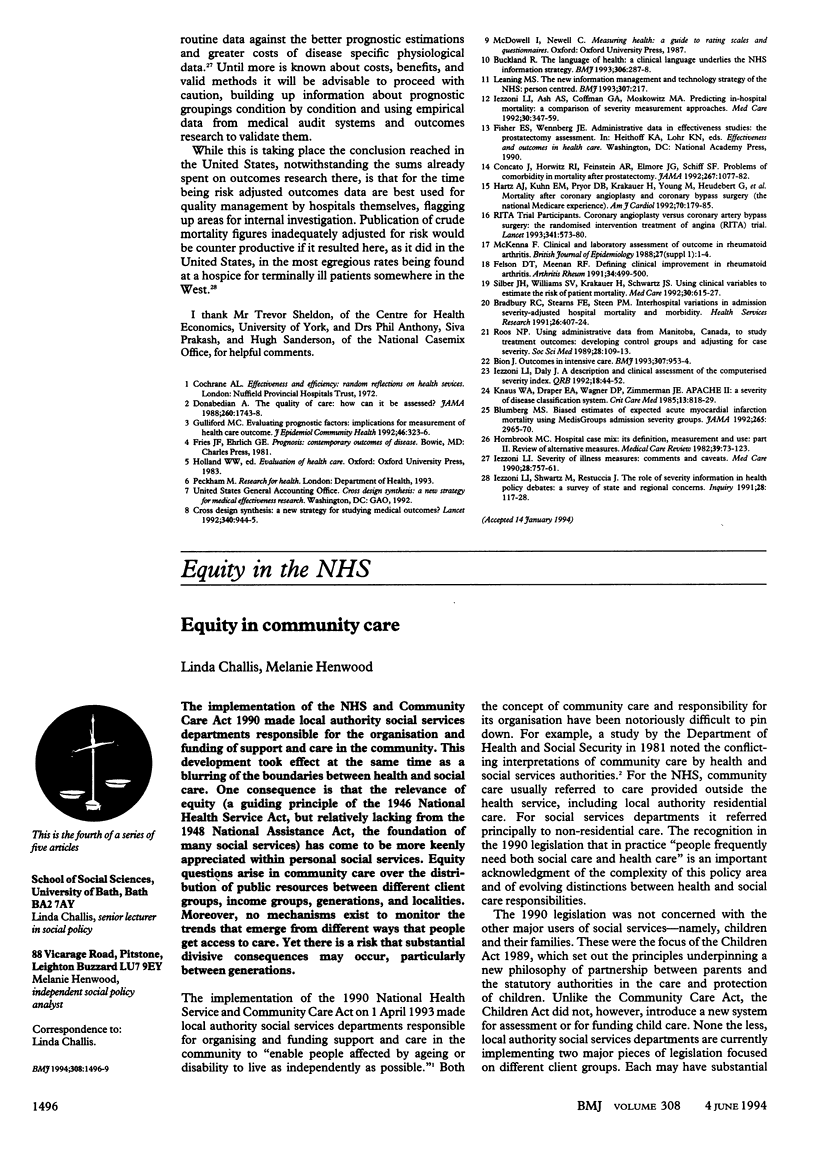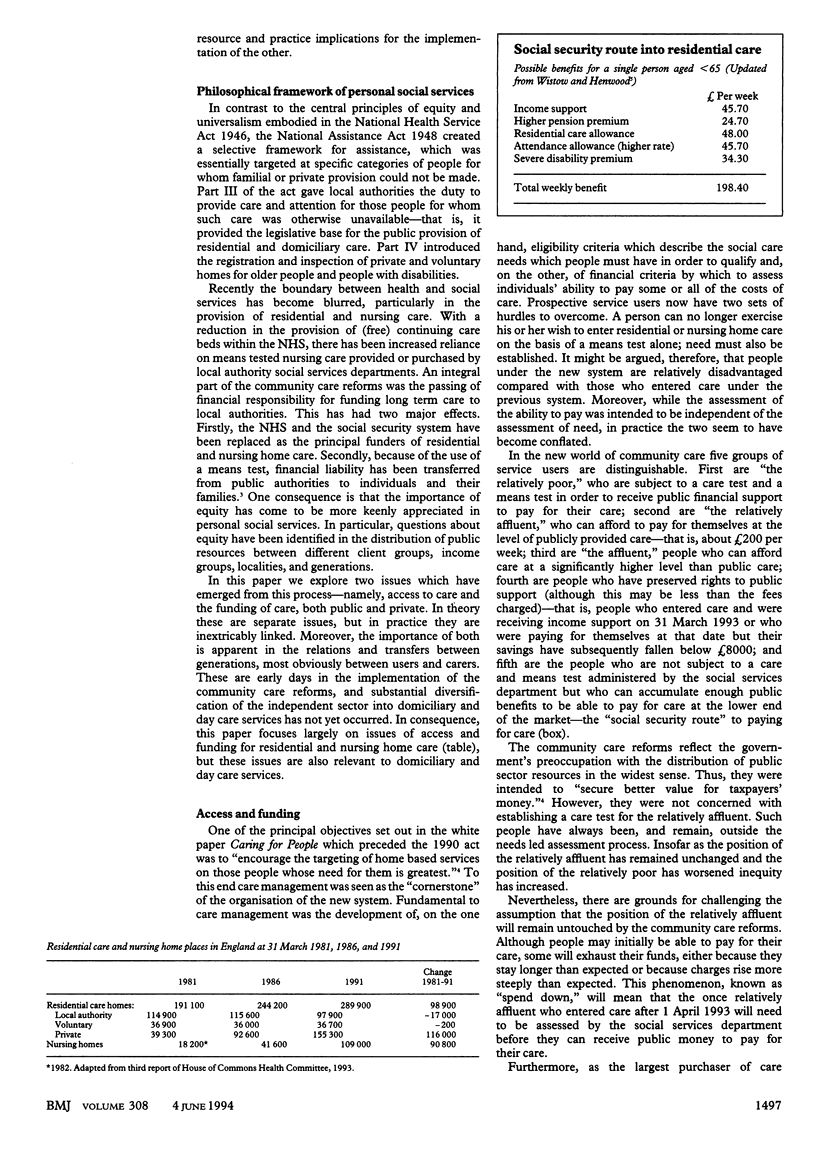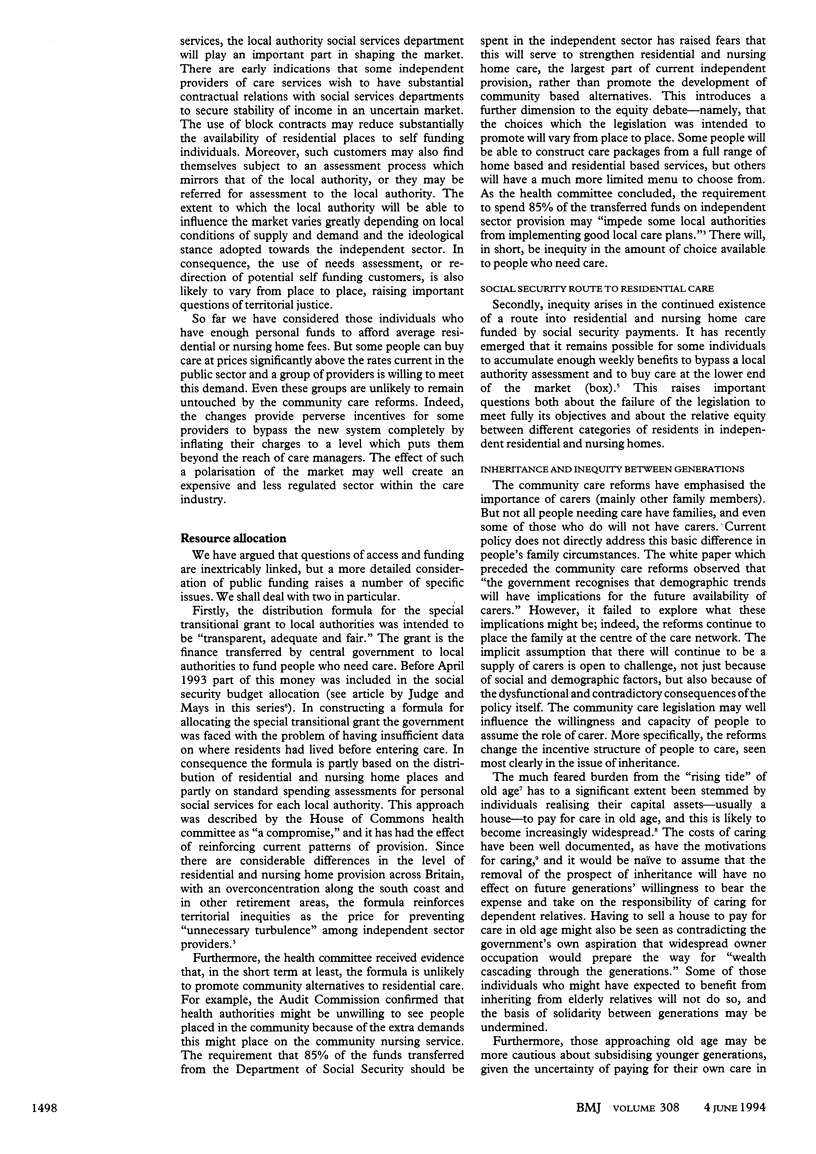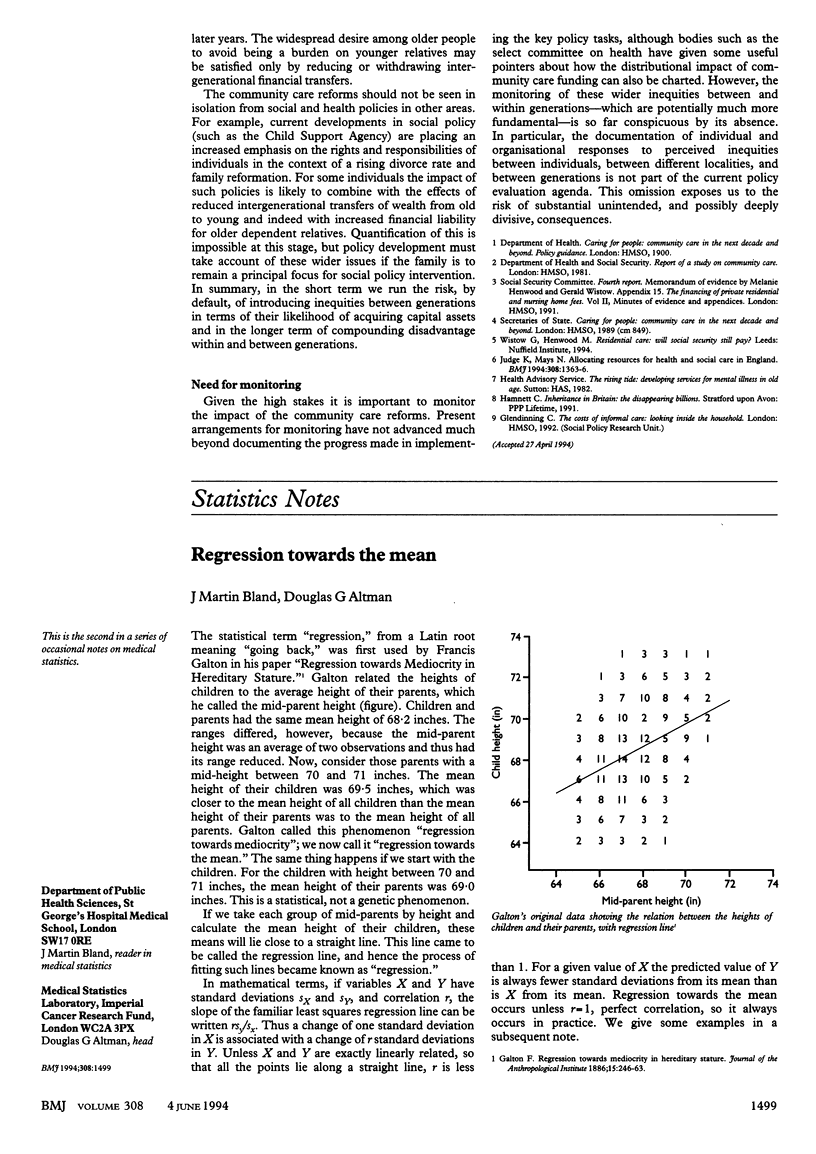Abstract
The implementation of the NHS and Community Care Act 1990 made local authority social services departments responsible for the organisation and funding of support and care in the community. This development took effect at the same time as a blurring of the boundaries between health and social care. One consequence is that the relevance of equity (a guiding principle of the 1946 National Health Service Act, but relatively lacking from the 1948 National Assistance Act, the foundation of many social services) has come to be more keenly appreciated within personal social services. Equity questions arise in community care over the distribution of public resources between different client groups, income groups, generations, and localities. Moreover, no mechanisms exist to monitor the trends that emerge from different ways that people get access to care. Yet there is a risk that substantial divisive consequences may occur, particularly between generations.
Full text
PDF



Selected References
These references are in PubMed. This may not be the complete list of references from this article.
- Judge K., Mays N. Allocating resources for health and social care in England. BMJ. 1994 May 21;308(6940):1363–1366. doi: 10.1136/bmj.308.6940.1363. [DOI] [PMC free article] [PubMed] [Google Scholar]


